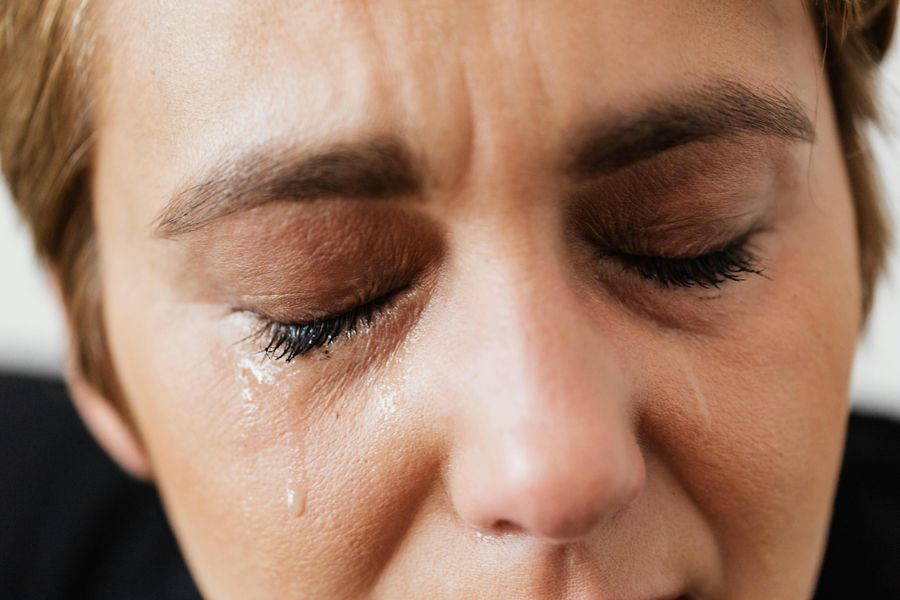Recognizing and Leaving Toxic Relationships
Hey there! Are you currently in a relationship that seems to be causing more harm than good? Do you feel trapped and unsure of how to move on?
Don’t worry, you’re not alone. Many people find themselves in toxic relationships, but it’s important to recognize when it’s time to leave and take steps to move on.
Identifying Signs of a Toxic Relationship
Let’s start by identifying some signs of a toxic relationship. Emotional abuse, physical abuse, mistrust, disrespect, gaslighting, fear, shame, and guilt are all common indicators of a toxic relationship.
If you feel like you’re constantly walking on eggshells around your partner, or if you’re afraid to speak your mind, these may be signs of emotional abuse. Physical abuse is never acceptable and is a clear sign that it’s time to leave.
When to Leave a Toxic Relationship
So, when should you leave a toxic relationship? If you feel threatened, disconnected, or you’re experiencing non-negotiable abuse, it’s time to go.
If your partner is struggling with addiction or you don’t feel valued and respected, it’s important to prioritize your self-worth and make the decision to leave.
Steps to Take When Leaving a Toxic Relationship
If you’ve made the decision to leave a toxic relationship, here are some steps you can take to make the process easier:
-
Focus on the facts. It’s easy to get caught up in our feelings, but it’s important to recognize the toxicity and harmful behavior for what it is.
-
Notice the impact on your mental health. Emotional abuse can take a huge toll on mental health, self-respect, and overall well-being. Recognizing this can help you stay motivated and committed to making positive changes.
-
Have the difficult conversation. Communicating your feelings with empathy and clearly communicating your boundaries is crucial if you want to break the cycle of unhealthy/toxic mental health.
-
Stick to the no-contact rule. It’s natural to have thoughts and urges to reach out to your ex, but it’s important to prioritize your mental health, stability, and self-control.
-
Seek support. Professional intervention, codependency, self-esteem, friends and family, and coping mechanisms can all help you better navigate this difficult time.
-
Sit with your emotions. It’s important to take time to reflect on what you’re feeling, why you feel that way and how to move forward constructively.
-
Know that it’s not the end of the world. Grief is natural – and its important in moving forward, but remember that with patience, self-worth, self-love, meditation, exercise, and exploration, you can overcome these feelings.
Remember, you deserve to be in healthy, happy relationships. Making the decision to leave a toxic one may be difficult, but it’s a crucial step in prioritizing your mental and emotional well-being.
You are not alone, and with the right support system and approach, you can move forward and build a brighter future. Moving on from a toxic relationship can be challenging, but it’s important to remember that it’s not the end of the world.
Moving Forward: Building Self-Love and Happiness
In fact, this can be an opportunity to focus on yourself, develop your sense of self-worth and self-love, and ultimately find happiness on your own terms. Here are some tips to help you move forward:
Developing Self-Worth and Self-Love
One of the most important steps in moving on from a toxic relationship is to develop your sense of self-worth and self-love. When we’re in a toxic relationship, it’s easy to lose sight of our good qualities and achievements.
Take some time to reflect on your positive attributes and accomplishments. Write down a list of things you like about yourself and things you’ve achieved that you’re proud of.
This can include personal, academic, or career-related achievements. Celebrate your achievements and give yourself credit for your hard work.
Remember that self-worth also comes from being kind to yourself. Practice self-care and allow yourself the time and opportunity to do activities that make you happy and feel relaxed.
This can include spending time with friends, cooking a nice meal, taking a long bath, or doing something creative. Try to focus on your blessings and count them every day.
A sense of gratitude can help remind you that even in difficult times, there is still much to be thankful for in your life.
Finding Happiness in Being Alone
Another important step in moving on from a toxic relationship is finding happiness in being alone. This doesn’t mean you have to be alone forever, but rather that you need to learn to be happy and content with yourself before seeking out another relationship.
Take the time to do some inner work, which can include developing better self-awareness, acknowledging your emotional triggers, working on areas where you need improvement, and doing things that make you happy. Remember that soulmates don’t necessarily come in romantic form.
You can find meaningful connections with friends, family, and other people who share your interests and values. Explore other sources of happiness and fulfillment that are independent of another person.
This can include discovering new hobbies, pursuing a passion that you’ve always dreamed of, or volunteering for a cause that you feel passionate about. Healing takes time, and it’s important to prioritize your emotional health and well-being.
Focus more on the journey, and less on the destination. Each step carries lessons that will help in your evolution, ultimately leading you to a place of growth.
In conclusion, moving on from a toxic relationship isn’t easy, but it’s important to take steps to develop your sense of self-worth, self-love, and ultimately find happiness on your own terms. Remember that you deserve to be in healthy, happy relationships, and sometimes that means prioritizing your own well-being and learning to be happy with yourself first.
In conclusion, leaving a toxic relationship can be a difficult and emotional process, but its worth it in the end for the sake of your well-being. Recognizing the signs of a toxic relationship and knowing when to leave can empower you to take control of your life.
Developing self-worth and self-love, finding happiness in being alone, and seeking support can aid in your healing journey. Remember that each step you take is progress, and with time, you will move forward and embrace a brighter future.
Always prioritize your happiness and well-being, know your worth and never settle for less. You deserve nothing but the best in life.



